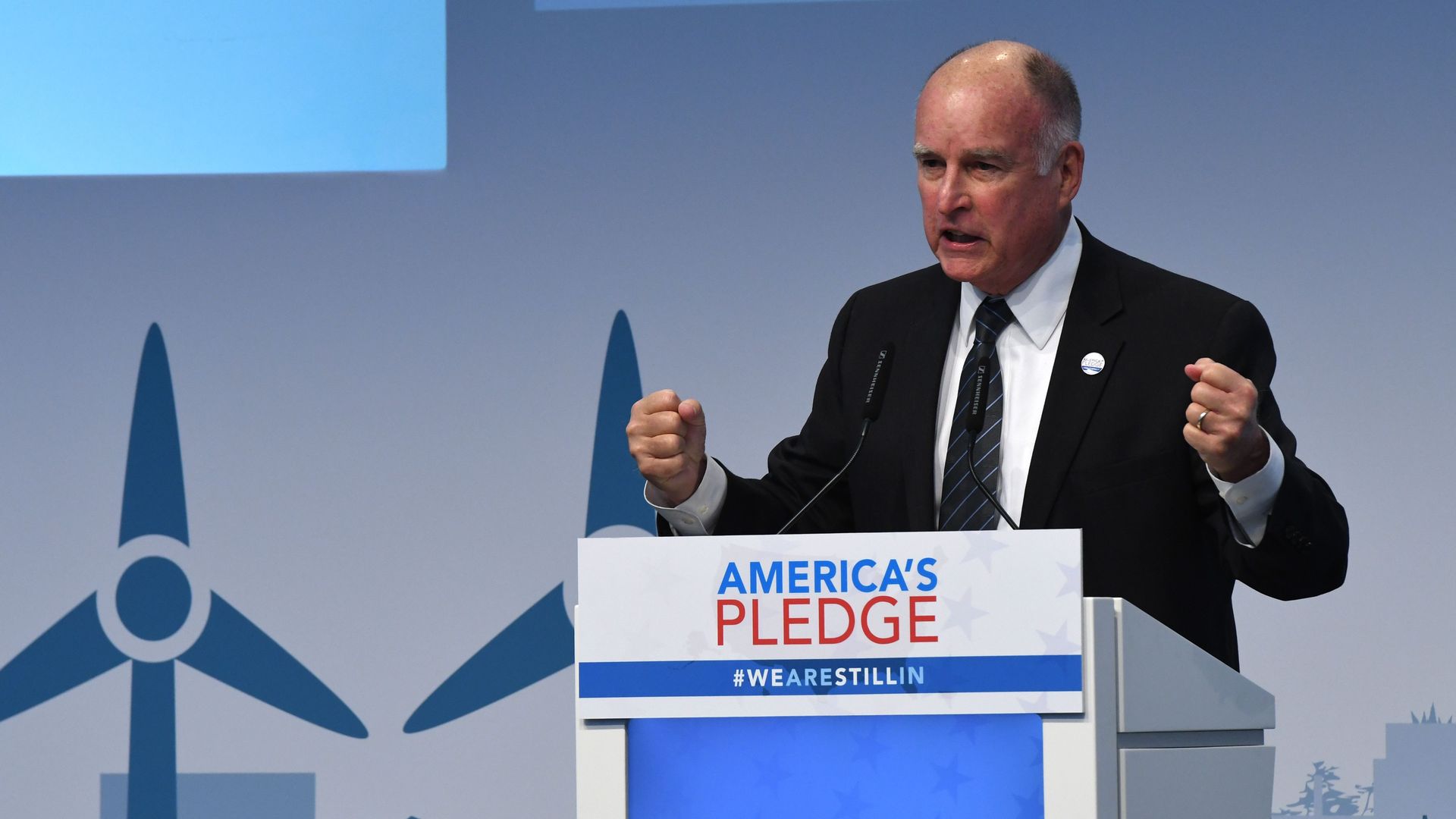Updated May 3, 2018 - Energy & Climate
Expert VoicesCalifornia cap-and-trade shows the value of diverse climate solutions
Add Axios as your preferred source to
see more of our stories on Google.

Governor of California Jerry Brown speaks during the COP23 UN Climate Change Conference in Germany on November 11, 2017. Photo: Patrik Stollarz/AFP via Getty Images
